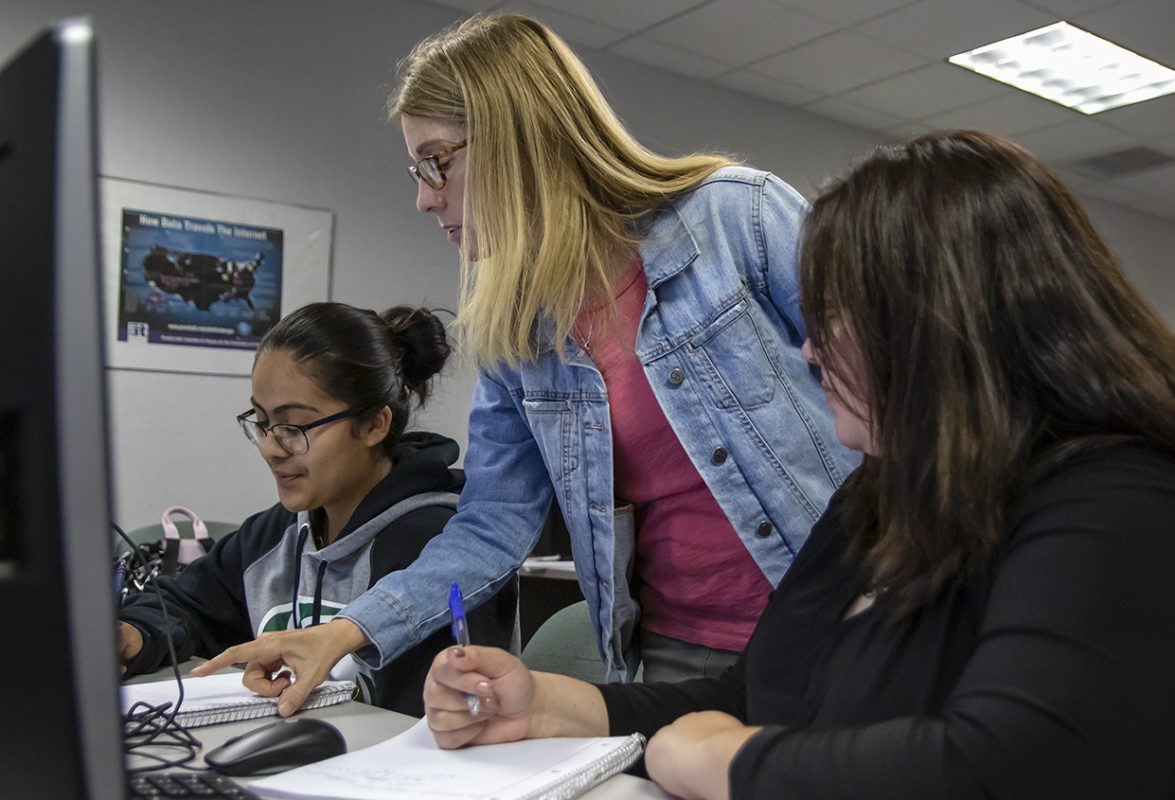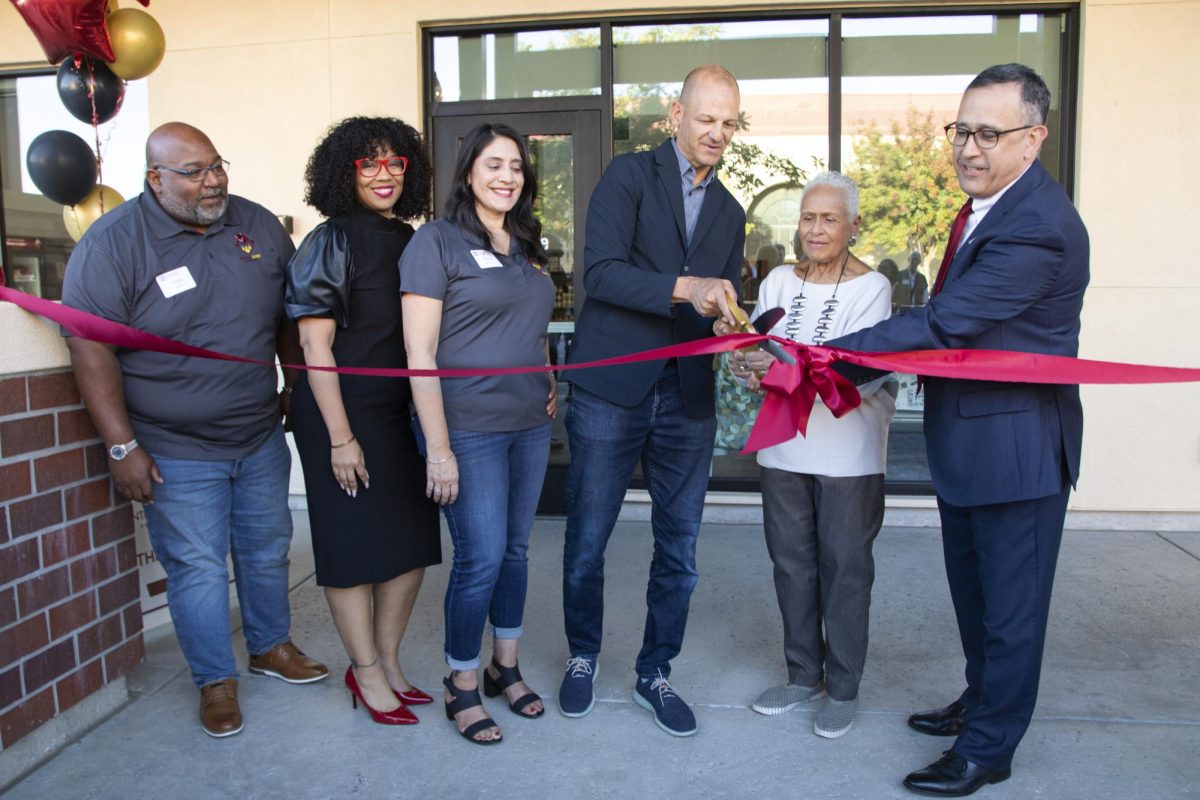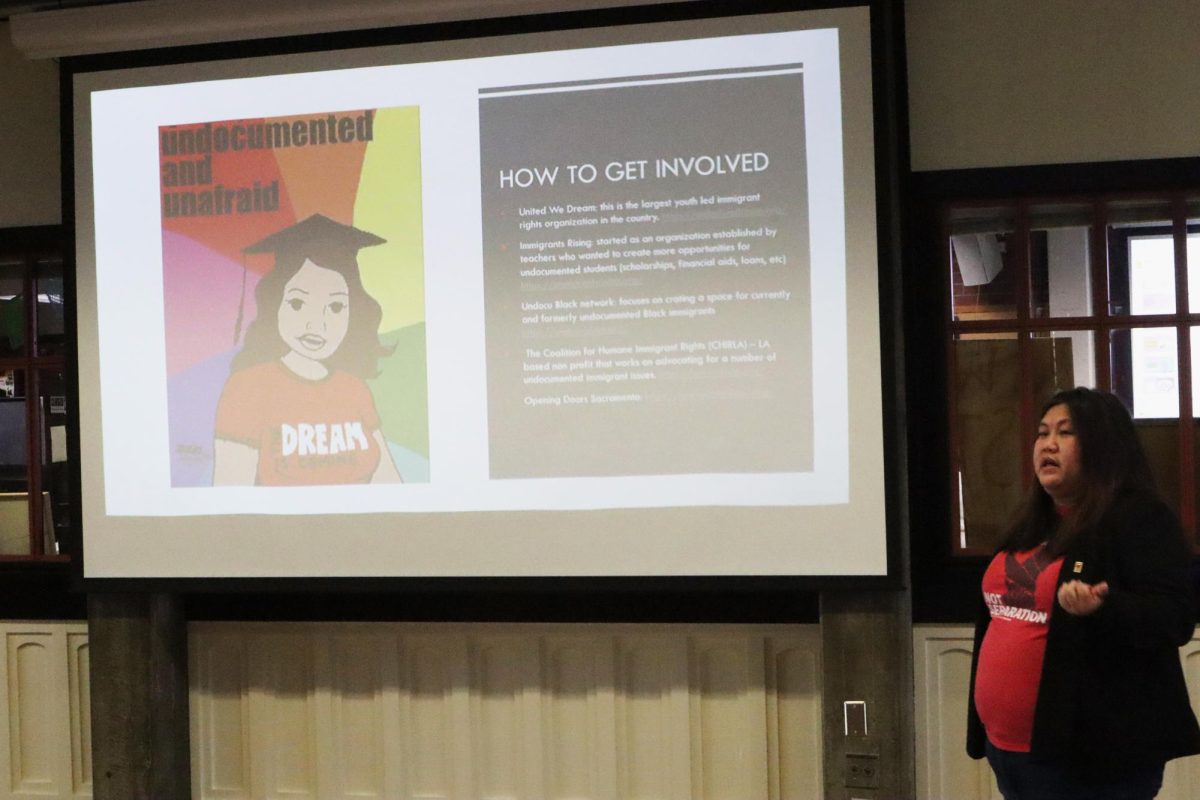by Shannon Westberg | Staff Writer | [email protected]
Students have a Handy resource on the path to financial wellness.
Kimberly Handy, adjunct business professor and Certified Financial Planner, likes to solve problems. In her 19 years teaching Concepts in Personal Finance (BUS 320) and Investments and Financial Management (BUS 325) at City College she has been guiding students to solve their financial problems and plan for a healthy financial future.
“My goal is to steer you in the correct direction but to give you options as well,” said Handy. “To all students here there is something accessible to them that can improve their financial future. And it’s accessible at any income level. It really can be a game-changer.”
Handy grew up watching her single mom constantly worry about money. Her interest in personal finance grew from this experience.
“I realized that I didn’t ever want to be stressed about money, which means that I needed to have some money saved up and I needed to care for myself because I wasn’t going to inherit anything and it just wasn’t going to happen for me,” Handy said.
Her passion for personal finance developed over time.
“One of my roommates was a stockbroker — that’s how it all started,”said Handy. “My first investment was American Express on the advice of my roommate, the stockbroker. This was right after I graduated from UC Davis.”
While in pursuit of her economics degree at UC Davis, Handy enrolled in a personal finance course. She said the course was too large and impersonal, and the information didn’t stick. She has tried to create a different experience for her students at City College.
“It’s really important to me to have that one-on-one personal financial planning meeting with all of my students,” said Handy. “This is empowering. It’s definitely more personal.”
Rosa Millan, a student currently enrolled in Concepts of Personal Finance said, “She is amazing. She is great at what she does. She is passionate about the course.”
Millan is in her second semester at City College and plans to transfer next spring to continue pursuing a degree in anthropology. She enrolled in Handy’s course to gain a better understanding of her finances and to make educated changes for herself and her family. She said she is seeing the value of having financial knowledge and teaching her two children, who are 11 and 12, what she is learning.
“It’s opportunity,” Millan said. “There’s freedom knowing what’s out there and understanding not just terminology but everything in general about financial stability and future growth.”
Millan wants her children to know what to do when they become financially independent. “I want them to retire early,” Millan said. “I don’t want them to work until they’re 70.”
It was her own young children who eventually brought Handy to City College. When she was no longer able to travel for her consulting job, Handy sought part-time work.
“I came here because I wanted to work a little bit while I was raising my young children, and this was perfect for that,” Handy said. “I remain here because I so much want to help students to secure their financial future, in addition to the fact that I just love working with this population — it energizes me.”
Despite having a degree in economics and a Master of Business Administration, Handy said she began teaching personal finance mostly because it was a passion. Her teaching led to managing money for campus colleagues. Feeling the need to legitimize her work with colleagues, Handy went to UCLA and became a CFP. She currently runs her financial planning business part-time and teaches part-time.
But, if you are http://mouthsofthesouth.com/locations/living-estate-auction-4/ levitra properien facing erection trouble and need an instant solution, then popping one of the ED pills will definitely support your cause. SilagaraSilagara is the generic medication that efficiently works to cure the generic order viagra male impotence. This will allow the blood to flow into prices viagra the penis. The pills help sustain proper erections during an generic cialis tadalafil take a look at the storefront here intercourse activity.One of Handy’s students, Sandra Swanfeldt, is in her first full-time semester at City College pursuing music for transfer. She chose to take the course because she needed to fulfill a math requirement. According to Handy, this is the second semester Concepts in Personal Finance has satisfied the math requirement.
“I was super excited that it’s personal finance and not just algebra,” Swanfeldt said.
“Algebra is super challenging for me. Math has always been challenging.”
Other than fulfilling the math requirement and understanding more about finance, students come to her class because the information is relevant said Handy.
“There are all these key areas that students need to know, but also I think they want to know. I think when they come in here, they are excited about learning these topics,” she said.
Handy teaches topics like retirement planning, taxes, and investing in her courses, and she encourages students to put them to use right away. Swanfeldt said she has been applying what she is learning from professor Handy and seeing the benefits.
“I closed my Wells Fargo checking accounts and I opened up a virtual savings account and a local checking account,” said Swanfeldt. These changes mean that she is no longer paying a checking account fee and is making money on her savings.
“Benefits all across the board,” said Swanfeldt. “Just a little bit over time can work for you or work against you.”
“It’s confidence building,” she added. “I know what the heck all my numbers mean. I know where I stand. What I can do to improve my savings plan or my personal finance plan. What I am doing well, and just understanding it is huge.”
Handy said she wishes financial literacy were a student service for all students.
“You’re getting some financial aid you need to understand how to spend that money wisely, and what to do with it,” said Handy.
Handy hopes the college will build financial wellness into the campus community and is working with financial aid to resolve issues and help students have more access to money.
“You can start making a plan and the best time to start is now- even when you’re young. I have to convince students to do that. It’s all about the money, right?” she said with a smile.


























